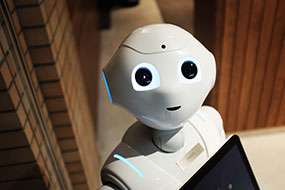Robotics education is rapidly gaining traction as a vital tool for developing STEM skills. But beyond programming and engineering, robotics nurtures essential social and emotional competencies such as teamwork, patience, and perseverance.
When young students engage in robotics activities, they learn to collaborate, communicate, and creatively solve problems. These projects naturally involve trial and error, helping learners develop resilience and a growth mindset — critical elements of well-being.
Hands-on robotics also encourages curiosity and engagement by connecting abstract STEM concepts with tangible outcomes. Watching a robot respond to commands provides immediate feedback and a sense of accomplishment.
Moreover, robotics projects often require cooperation, boosting social skills and empathy. Students learn to listen, share ideas, and support peers, fostering a positive learning community.
Introducing robotics early lays a foundation not only for future career readiness but also for well-rounded personal development.
Further reading:
- Benefits of Robotics Education for Kids (STEM Education Guide)
https://stemeducationguide.com/benefits-of-robotics-education-for-kids/ - Social-Emotional Learning through Robotics (Edutopia)
https://www.edutopia.org/article/using-robotics-support-social-emotional-learning
